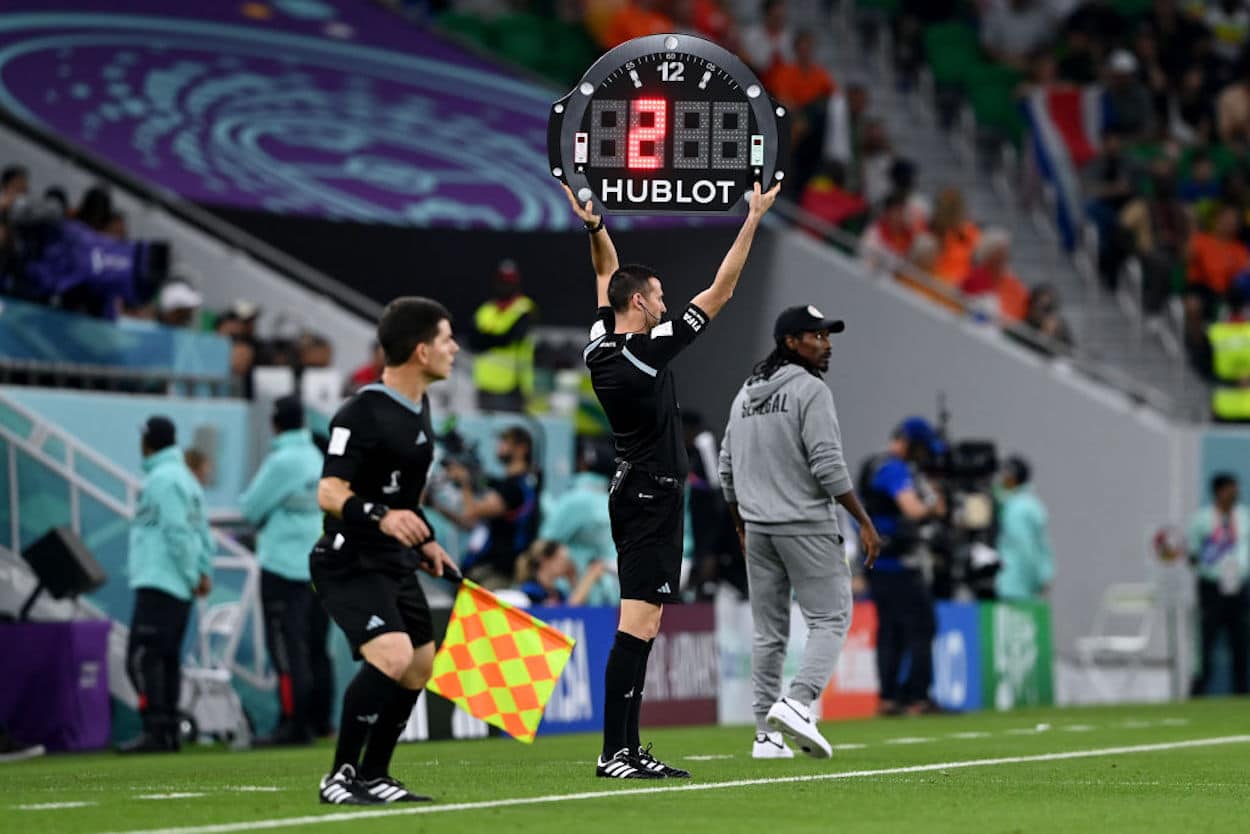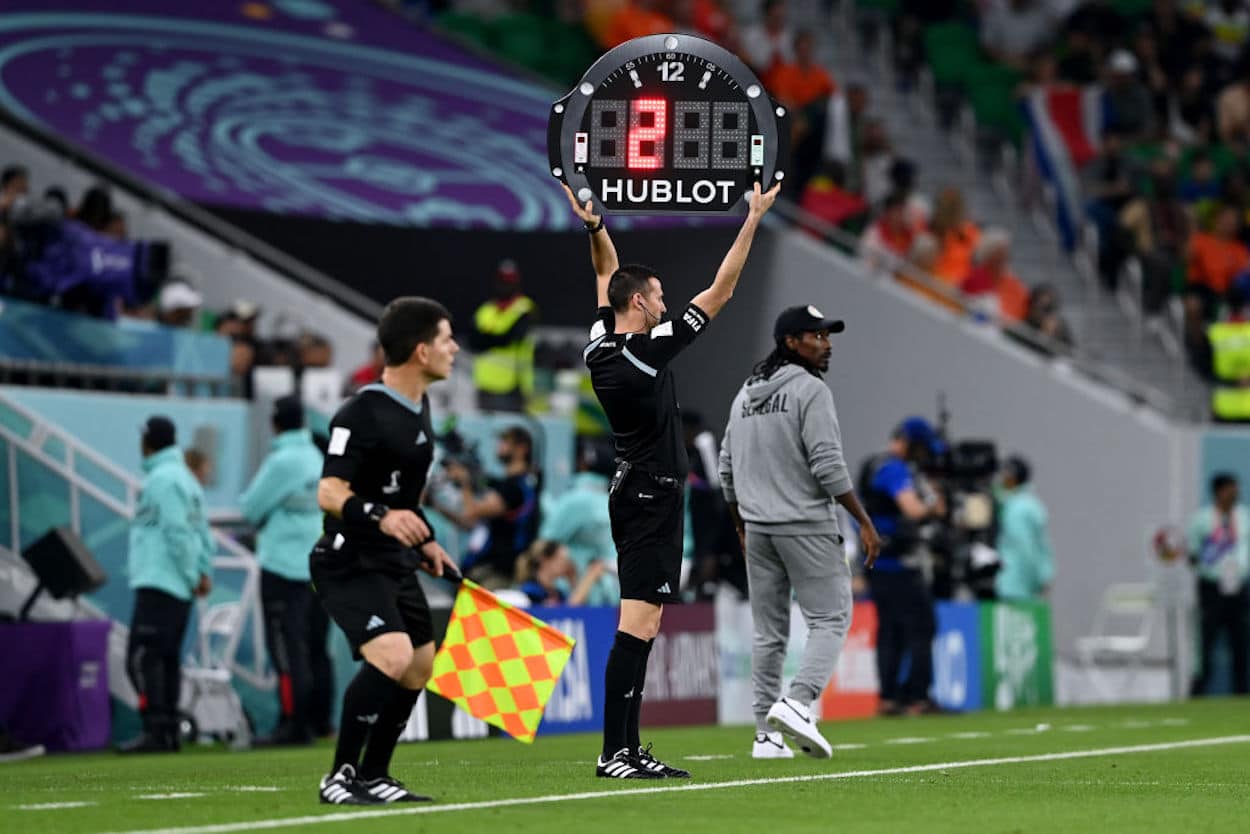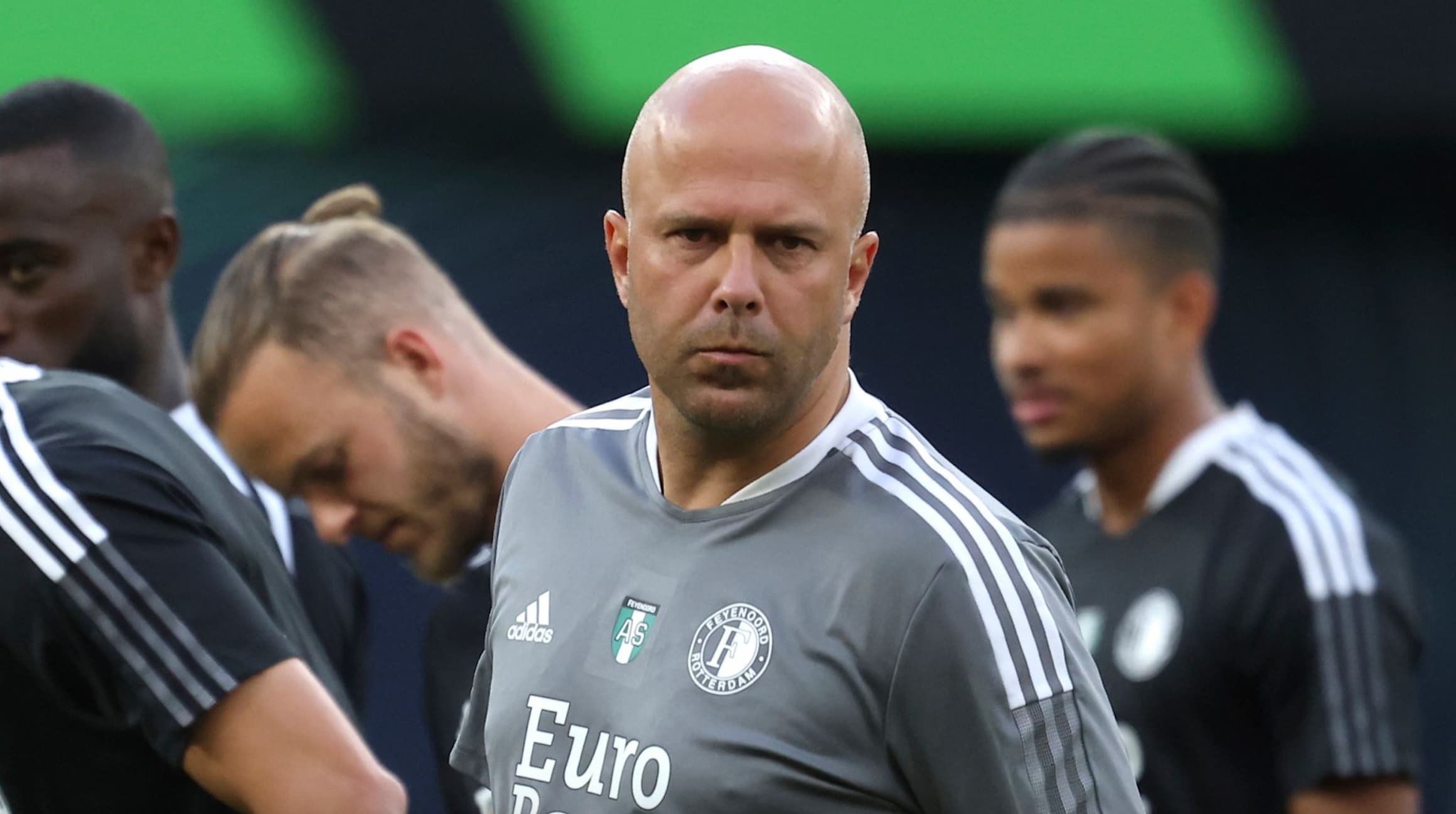
World Cup Stoppage Time Shows How Badly Managed Most Soccer Matches Are
On the whole, soccer is a pretty accessible sport. In order to play, you just need a ball and two goals. Watching is also pretty straightforward. While some rules, like offside, can be a bit confusing, there isn’t that much of a grey area. You try to get the ball into the goal without using your hands, and the opposition is trying to accomplish the same feat, albeit in the other direction. Then stoppage time enters the fray.
While timekeeping has just been accepted as one of soccer’s quirks, things are looking a bit different at the 2022 FIFA World Cup. Rather than having a few minutes of extra time tacked onto the end of each match, we’re seeing the fourth official hold up numbers like eight on his board. That’s all well and good — if a bit jarring — for these games, but it does prove another point: Domestic referees haven’t been adding anywhere close to the right amount of stoppage time.
What is stoppage time, and why are we seeing so much of it all the 2022 World Cup?
In most sports, there is a finite clock that counts down to zero. In soccer, however, things move in the opposite direction.
When the match starts, the referee’s watch begins counting up toward 45 minutes. That time doesn’t run straight through, though. Whenever the play is stopped due to injury, time-wasting, or any other factors that push beyond the ordinary flow of play– at the referee’s discretion, of course, — the official time will be paused. At the end of the 45 minutes, that outstanding time becomes what’s known as stoppage or injury time. It’s indicated by the fourth official holding up a board on the sidelines.
Under most circumstances, you’ll only see a few minutes of stoppage time at the end of each half. There’s an occasional circumstance when things will push toward seven or eight extra minutes, but those are usually pretty obvious. Think a player needing some serious medical attention on the pitch.
During the 2022 World Cup, though, the numbers have been larger, and we’ve been playing beyond those already high baselines. That’s because FIFA is trying to be as accurate as possible and actually add on the true stoppage time.
“FIFA are determined to extend the length of time the ball is in play for, to keep its matches entertaining to watch,” The Athletic explained. “Football’s world governing body have repeatedly insisted they want to add time accurately when play stops for VAR interventions, the treatment of injuries, substitutions, penalties and red cards, while [referees committee chairman Pierluigi] Collina has said he wants to crack down on players time-wasting.”
That effort suggests that domestic referees haven’t been adding the right amount of time

While adding the exact amount of stoppage time at the end of the game is a noble effort, there’s room to debate the actual process. A quick scroll through social media reveals a variety of sentiments. Some feel that playing nine extra minutes will dissuade time-wasting. Others suggest that tacking that much football onto the end of the contest, when players are already exhausted, isn’t the best solution from an on-pitch or an entertainment perspective.
That’s a personal preference, and I won’t litigate that for anyone. Something we can all agree on, however, is what this effort suggests about the enforcement of injury time elsewhere.
If you’ve spent any time around soccer supporters, you’ll have heard the gripe that stoppage time can feel arbitrary. We’ve all seen a match where there are multiple substitutions, a couple of goals, and some obvious time-wasting, but the board only says there will be two minutes of extra time. By that same token, there are matches where five minutes seem to appear out of nowhere.
As with everything else — you can consult my takes on the inconsistencies of Premier League VAR — I believe this is more due to the way rules are enforced in practice and/or incompetence than referees actually trying to shape the course of the match. Even with that caveat, though, it will be tough to look at one minute of stoppage time during a domestic match and feel like that number isn’t completely inaccurate.
When you look at it, though, is there anything more FIFA than having an idea that inadvertently creates some other problems elsewhere in the soccer landscape? Happy World Cup, everybody!



